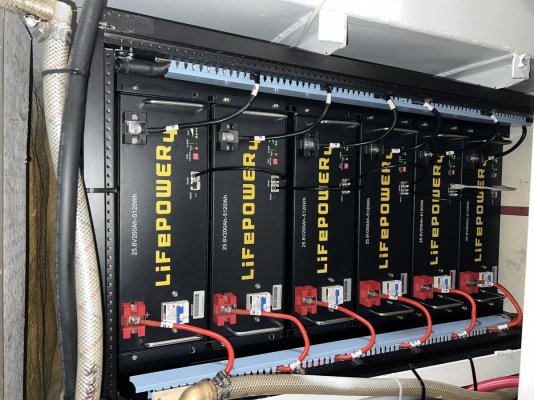from this article:
https://cleversolarpower.com/is-lifepo4-battery-safe/
"If you work with raw lifepo4 cells, you need to have a divider in between the cells. Otherwise, the friction can rub away the blue plastic on every cell. If the blue plastic is rubbed off, the negative of one cell comes in contact with the other negative of another"
Do they have such dividers between the cells in that server battery which is not designed to be used in a moving vehicle?
"A short-circuit can occur if the positive and negative terminals of a LiFePO4 battery come into contact with each other. This can cause the battery to become unstable and potentially catch fire."
Water can short the contacts after the BMS, so BMS can not shut down the battery. There is no such risk if BMS is sealed inside. In the video, Will mentions building a watertight box for marine use, which is impractical and will greatly increase the installation cost.
i agree, LiFePO4 is the safest option. Still, for me personally, using unsealed LiFePO4 with an external BMS is riskier in the marine environment, especially when the battery is located below the deck in the engine room. And building a watertight enclosure will not be easy and will be expensive.
if someone is considering this upgrade, it's worth noting that the sealed LiFePO4 battery with BMS inside may be a safer option. Yes, there is a price difference and fewer choices, but it's not limited to very expensive Victron and BattleBorn brands any longer.
For example, bigbattery has marine-grade sealed LiFePO4 with stainless hardware:
https://bigbattery.com/products/12v-seal-lifepo4-228ah-3-0kwh/
two of them will be $2,580 for 440Ah
or IP65-rated SOK batteries:
https://www.currentconnected.com/product/sok-sk12v206/
$1918 for 412Ah
I'm not saying those are great batteries - it's just an example and needs more research. There are maybe some new options now.
My point is that proper marine-grade batteries are not 3x or 4x more expensive now, as was the case not long ago.

